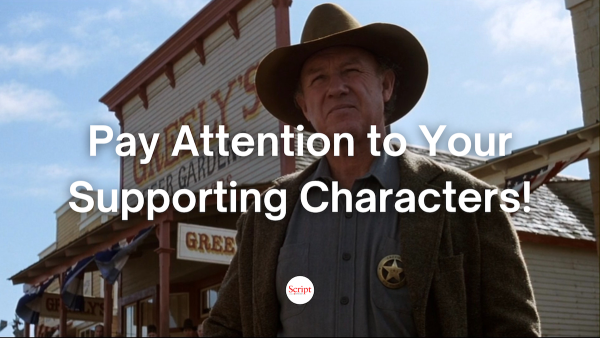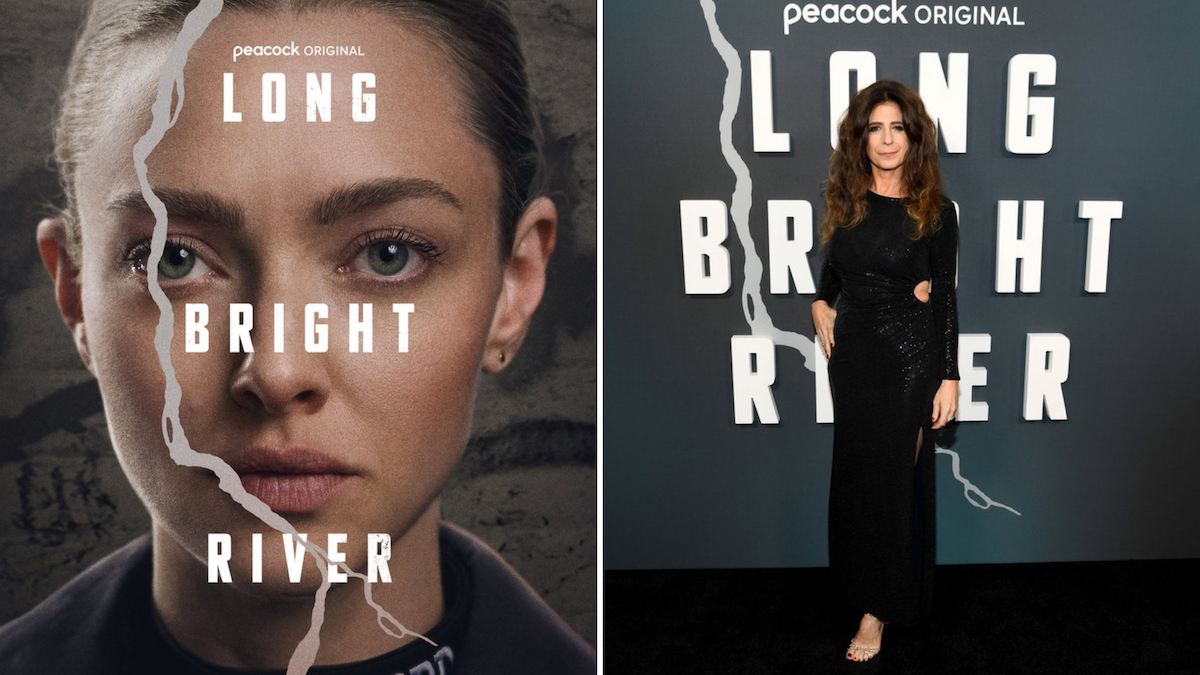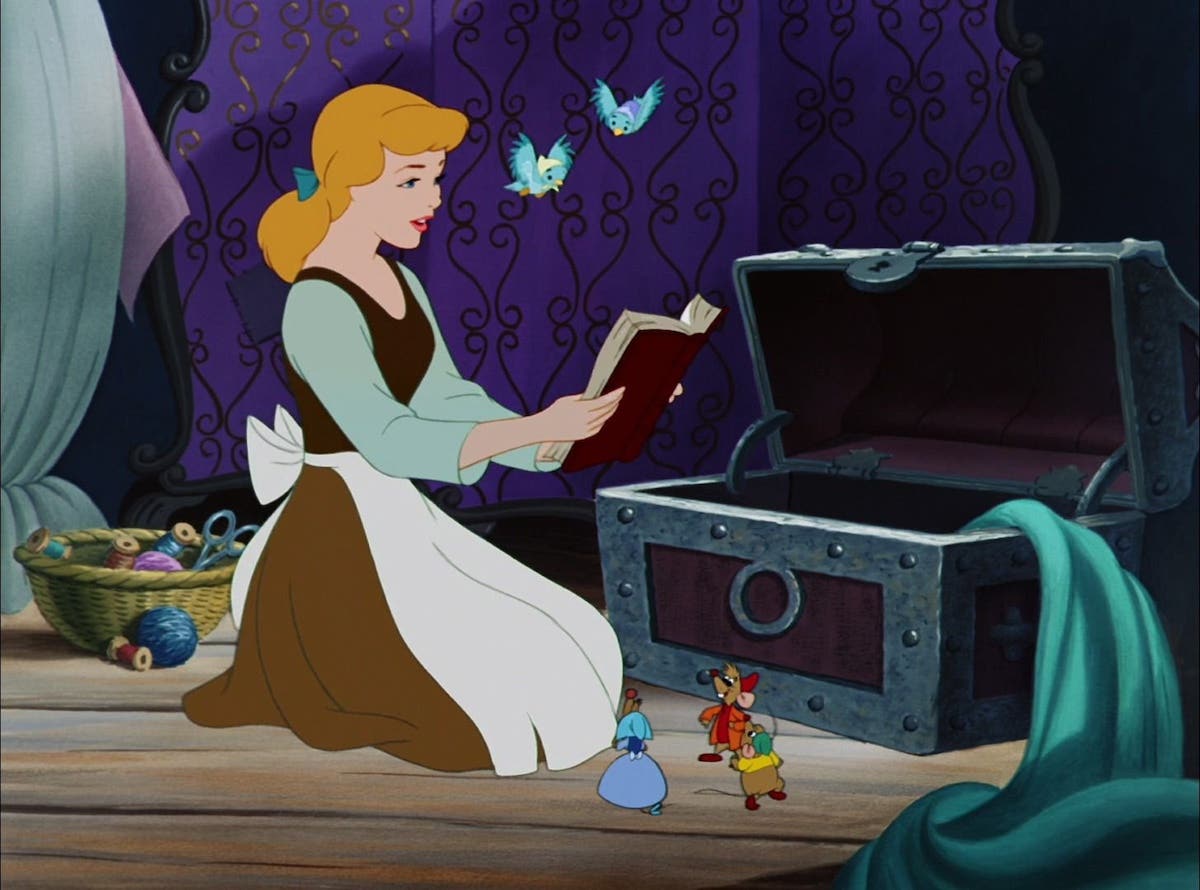Behind the Lines with DR: What Makes a Bad Screenplay Dead on Arrival?
One July 4th weekend I was invited to join a small collection of William Morris lit agents who were planning to get independent down Texas way. Advertised was a big…
One July 4th weekend I was invited to join a small collection of William Morris lit agents who were planning to get independent down Texas way. Advertised was a big family lake house near Waxaramalamahachie where I was promised a front-row seat to an authentic, Lone Star blowout. I fully expected a sweaty, four-day mix of longneck beers and long-legged girls. I wasn’t disappointed.
But on my first night under a starry Texas sky the conversation turned curious to this writer. And I’ve never forgotten it.
I don’t recall how the discussion began. Though I’m certain it had something to do with me being both the token client and the only writer on the adventure. Just six agents who’d left their designer suits in L.A. and Mr. Yours Truly. And it went something like this:
“Hey Mike, what’s your best way to know it’s a shitty script before you even read it?” queried Rick.
“Oh, easy,” said Mike. “Cover page.”
“Cover page?” I asked.
“Yeah,” said Rick. “Anything other than the basic font. Then I know the script sucks.”
“What a bunch of hooey,” I said.
“Seriously,” chimed Carey. “And it’s gotta be in Courier or some kinda standard typeface. Any special kinda printing is a sure sign of screenplay suckage.”
“Can’t believe I’m hearing this,” I said. “You guys are that lazy?”
“Not about lazy,” said Carol. “Do you know how many scripts I’ve read? Thousands upon thousands. And most of them stink. Some more than others.”
“So you look for shortcuts?” I asked.
“You do what you gotta do to cut through the chaff,” said Mike.
“Okay,” I said. “So let’s say it’s me. A so-called ‘valued’ client handed you—”
“Who said you’re a valued client?” joked Mike.
They all laughed at my expense. A deserved poke leveled at the defender of all writers.
“Only reason we brought you,” said Rick, “is so we could expense the trip.”
“That’s the only smart thing you’ve said since we left L.A.,” I jousted.
Score one for writers.
“But seriously,” I pressed on. “Let’s say I handed you a script with some fancy font on the cover page.”
“And we don’t know you?” asked Carol.
“Right.”
“Shit outta luck,” said Carey.
“Okay,” I said. “Forget me. It’s a script by (Academy Award Winner) Alvin Sargent.”
“Moot point. Great writers don’t make those kind of mistakes,” said Rick. “It would never happen.”
“Also. Artwork on the cover page or jacket,” said Carey. “Kiss of death.
“I got one,” said Carol. “Weight.”
“Weight?” I asked.
“Yeah,” she said. “Good scripts are light. Easy to read. You can hold ’em like a cocktail tray and tell if they’re too heavy.”
“Or you can just turn to the back page,” said Mike.
This is where they all chimed in with nods and beer bottles in a toast to their own collective, script-reading genius.
“How many pages?” I asked.
“My limit?” finished Carol. “One-twenty-five.”
“Oh, you are way too easy,” said Rick. “Mine’s one-fifteen.”
“One-fifteen max,” chimed Mike.
“I’ll go up to one-twenty,” said Carey. “Otherwise it’s in the circular file.”
“You’re all cruel,” I said, feeling the need to defend all the unrepped and unproduced writers toiling between day jobs and doomed relationships. “What if it takes more than a hundred twenty pages to tell the story?”
“Make it shorter,” said Mike, big grin, but not altogether joking. “New writers can’t afford to appear boring or unprofessional. Especially when I have fifteen scripts to read over a weekend.”
“But you don’t read all of ’em,” said Carol.
“I try to,” said Mike.
“If I get past the cover page,” said Carey, “but get bored by page fifteen, I skip to the end, skim backwards. Done in thirty minutes. Next.”
“Unless there’s coverage,” said Rick. “Then you can just skim that.”
They all saw my disapproval. I was sick that they were willing to appear so callous in front of a writer. Maybe it was the beer or that they outnumbered me.
“I see you shaking your head,” said Mike. “But believe me. If you had my job? You’d find ways to thin the herd.”
“My biggest tell a script is crap before I read it?” continued Carey. “The binding.”
“Definitely the binding,” said Rick.
“Like what kind of binding?” I asked.
“Anything that’s not three brass brads in three-hole punch paper,” said Carey.
“So the spiral kind?” I asked.
“The worst!” said Carey.
“Total amateur move,” said Rick.
Whoah. Wait. Stop the bus.
Not too long ago, before scripts were emailed as .pdfs and downloaded (legally and otherwise) to executives’ iPads and Kindles, writers were responsible for making copies and distributing the result of all their hard efforts. Ergo, the script. Thus, the evolution of some many copy stores tucked into SoCal strip malls between the nearby 7-Eleven and Vietnamese nail salon. Each copy shop had a variety of services — including binding. The cheapest, of course, was three-brass brads poked through pre-punched holes in the margin. More deluxe options — not to mention pricier — were spiral or plastic coil binding, tape binding, or velo binding. Each was neater and, in my opinion, looked very pro. But for a broke-ass scribbler like myself, the cheapest choice meant that I might be able to dine out on a Whopper that week.
“So what you’re saying,” I said, incredulous as hell, “Is that if I hadn’t been broke as a joke back when I was starting out, you wouldn’t have even read my stuff?”
“Probably not,” said Rick. “Truth hurts. But it’s real.”
I found myself crushed for all the poor word jockeys with dreams of a movie career who weren’t getting their scripts read because of this ridiculous profiling by agents and their ilk. It was my opinion that if a writer had slaved over a script for days, weeks, even years, it deserved to get read by somebody with a enough sway or good sense to give it a thumbs up or down.
Then I did the math. Tens of thousands of screenplays are logged every year into the WGA database. And that’s just the ones that are registered. There are even more sprouting up like opium poppies in Afghanistan. And with the proliferation of the World Wide Web, easily accessible writing software, how-to-books, and stories of one-script wonders who squirt a hundred plus pages of yuks through their word processors, attach Jonah Hill and find themselves having penned a go movie, more and more and more writers and wannabes are flooding into a market that is short on quality readers and longer on odds.
To get through all those scripts—most of which they know WILL be God awful—an agent or buyer or producer must construct some sort of threshold for a screenplay to clear in order to warrant a pair of bleeding eyeballs. Arbitrary though these red flags may appear, they are not entirely without merit considering the numbers game in which they are engaged.
So all you showbiz wannabes, listen up and pay attention. Ask questions. Check out what sells and why in order to avoid amateur pitfalls. And do what you can to understand the gatekeepers and their potential prejudices against your work. I’m not suggesting you morph yourself into the artist they want to hire. I’m only suggesting you make sure to wrap yourself in a professional bow before catapulting over the over the wall.
Related Articles:
- Balls of Steel: Dear New Screenwriter
- Meet the Reader: How I Do What I Do
- Joseph McBride's Necessary Screenwriting Book: An Interview with the Author
Tools to Help:
Doug Richardson cut his teeth writing movies like Die Hard, Die Harder, Bad Boys and Hostage. But scratch the surface and discover he thinks there’s a killer inside all of us. His Lucky Dey books exist between the gutter and the glitter of a morally suspect landscape he calls Luckyland—aka Los Angeles—the city of Doug’s birth and where he lives with his wife, two children, three big mutts, and the dead body he’s still semi-convinced is buried in his San Fernando Valley back yard. Follow Doug on Twitter @byDougRich.







